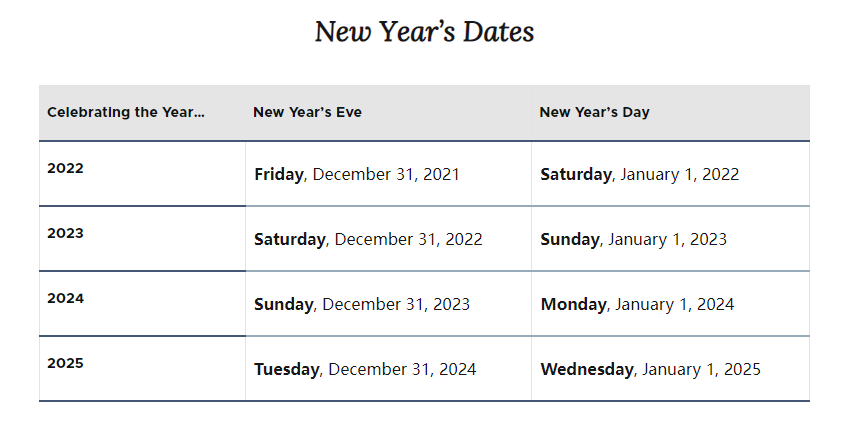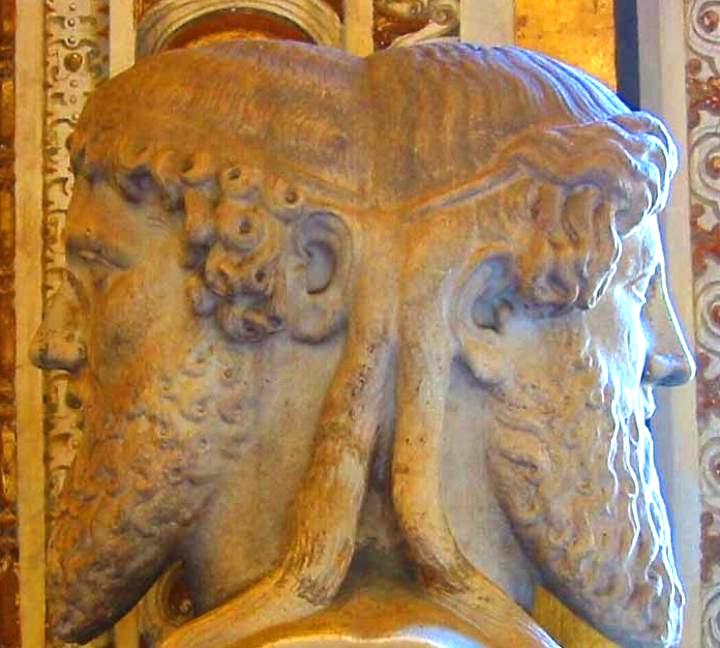
December 31, 2021
Why Does the Year Starts on January 1?
Happy New Year! Ever wondered why January starts the new year? Find out all about New Year's Day, popular customs, and how we celebrate the beginning of a new year.

Celebrating the New Year
It's safe to say that we’re all ready to celebrate the start of a new year. This time around, New Year's Eve is Friday, December 31, 2021, and New Year's Day is Saturday, January 1, 2022. We look forward to watching the grand fireworks displays that will mark the start of 2022—hopefully a better year for all!

What Day Is New Year's?
January 1 is a public holiday in China (as well as many countries around the world). It is a day off for the general population, and schools and most businesses are closed.

Why January 1 Starts the New Year
January 1 starts the New Year according to the Gregorian calendar, which is the calendar in use today. In 45 B.C., New Year's Day was celebrated on January 1 for the first time in history when the Julian calendar took effect (thanks to Julius Caesar's reforms). Today's Gregorian calendar was introduced in 1582 by Pope Gregory XIII to correct some slight inaccuracies, but continues to start the year in January.
The month of “January” is named for Janus, the ancient Roman god. Often depicted as having two faces—one looking forward and one looking back—Janus was the god of beginnings and endings, doors and gates, passageways and transitions.
In ancient Roman times, the gates of the temple of Janus were open in times of war and closed in times of peace. While Janus is linked to war, it was more as a way to protect and welcome returning warriors; at other times, he symbolizes peace.

In modern times, not all cultures follow the Gregorian calendar. The date of the New Year in the Hindu, Chinese, Coptic, Jewish, and Islamic calendars differs.
For example…
- The Chinese New Year starts in January or early February.
- The Jewish New Year (based on a lunar calendar) is called Rosh Hashanah and usually takes place in September.
- The Islamic New Year, also known as the First of Muharram, is usually observed in July or August and is based on the sighting of the thin crescent Moon.